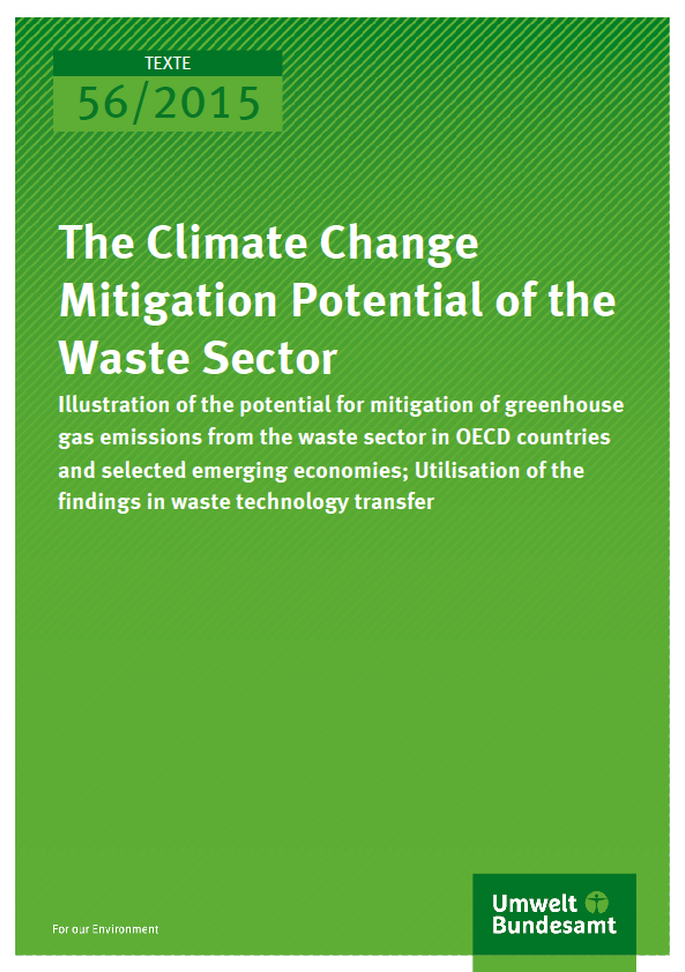
The Climate Change Mitigation Potential of the Waste Sector
Illustration of the potential for mitigation of greenhouse gas emissions from the waste sector in OECD countries and selected emerging economies; Utilisation of the findings in waste technology transfer
This study presents the greenhouse gas (GHG) mitigation potential of municipal solid waste (MSW) management in OECD countries as well as India and Egypt. Three detailed GHG balances for the USA, India, Egypt and one balance for the OECD countries are elaborated applying the life cycle assessment (LCA) method according to ISO 14040/14044 for waste management. For each balance the respective status quo is determined and compared with two scenarios to 2030. The methodology as well as the underlying data and assumptions were profoundly discussed at workshops with LCA experts and local stakeholders. A GHG calculation approach was developed, which uses harmonised emission factors to credit avoided emissions from material recycling. With regard to the status quo, the net results for the OECD countries, the USA, India and Egypt show that methane emissions from landfilling are the main contributor to the GHG burdens. Only OECD countries with little or no landfill of (organic) waste achieve a net credit (e.g. Japan). These credits are the more evident the higher recycling rates are and the more efficient energy recovery is. The findings of this study were presented in May 2014 at the environmental fair IFAT in Munich.
Project No. (FKZ) 3711 33 311 Publisher Umweltbundesamt File size 6.10 MB Print version not available